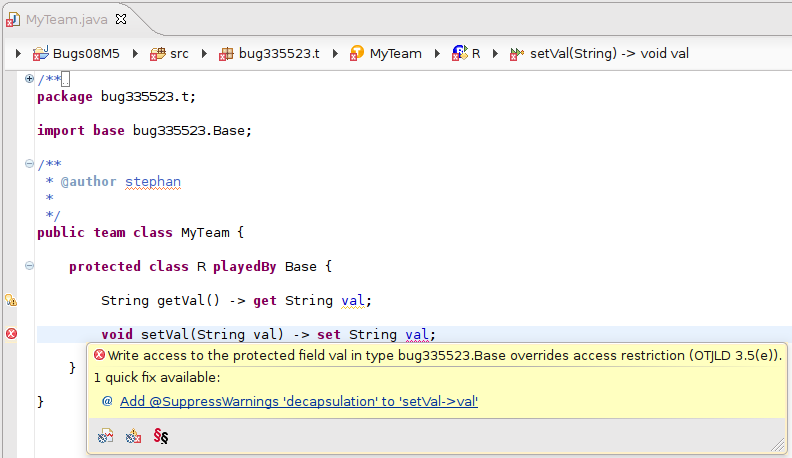Views & Dialogs
Compiler preferences page cleaned up
since 0.8.0M5
335739
The preference page for OT/J compiler options has be revamped following recent improvements in the JDT UI. The page is now structured into expandable sections per group of problems. Also incremental search within the tree of options is supported. The option to disable "scoped keywords" was apparently never used and has been removed from the preferences.
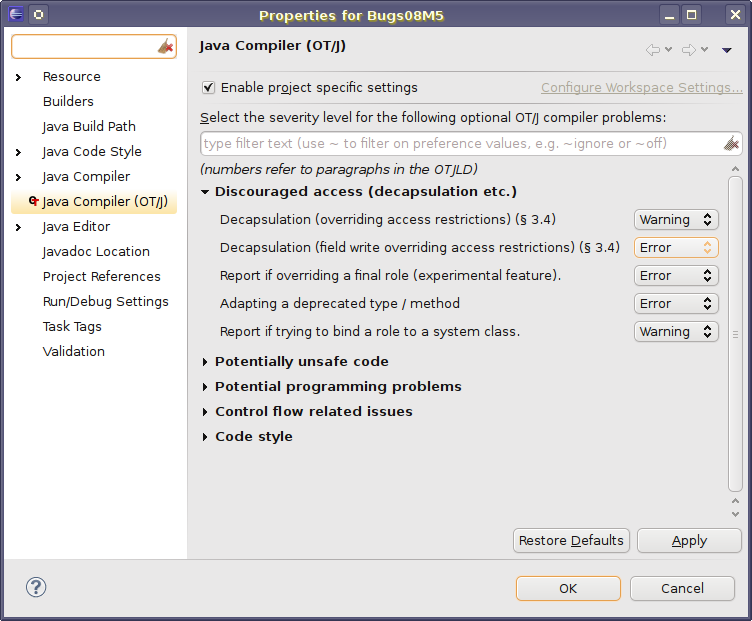
Content assist
Create role method quickfix
since 0.8.0M4
329988
If a role class has a callin binding whose left-hand side does not resolve to an existing role method a quickfix exists for creating the missing role method. Since 0.8.0M4 this quickfix respects the signature of the bound base method even if the callin binding does not declare any signatures (see the int parameter and return in the screenshot below):
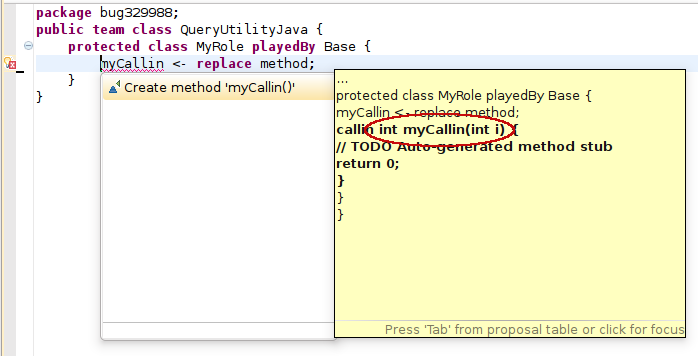
Refactoring
Extract role interface
since 0.8.0M6
339264
A new option has been added to the Extract Interface refactoring: If the enclosing class is a role class a new check box appears:
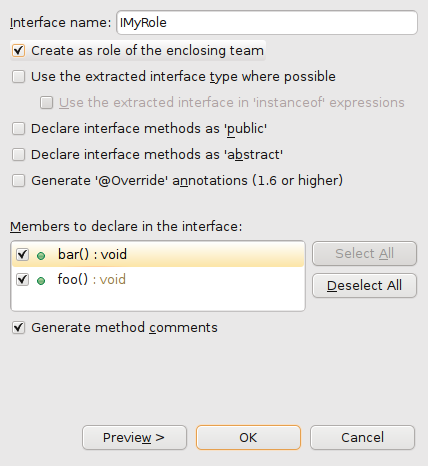
If this box is checked the new interface will not be created as a top-level type (as normally done by the JDT), but as a role interface of the current enclosing team.
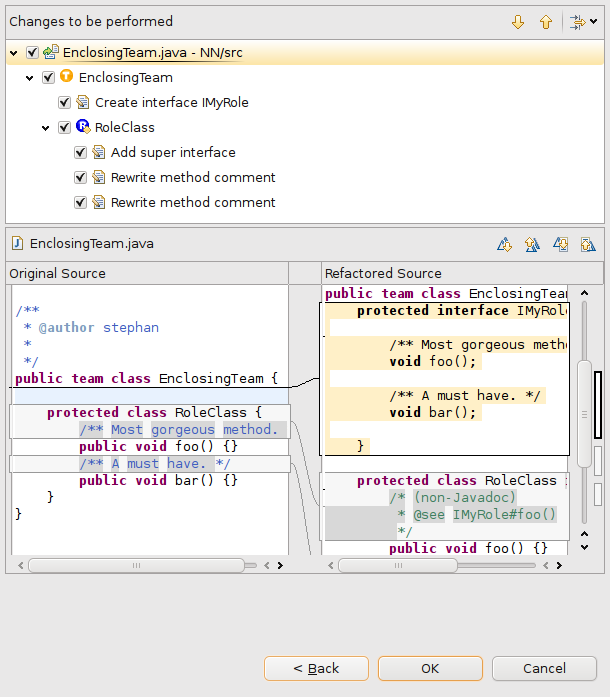
The refactored result looks like this
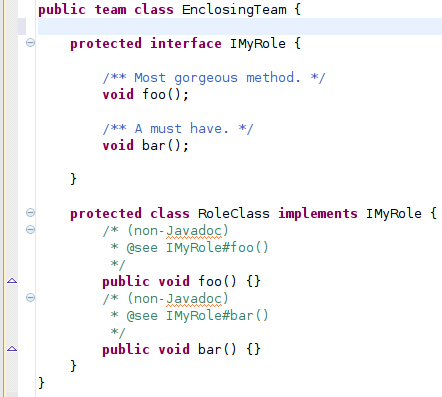
Language
Precedence among tsupers
since 0.8.0M3
326969
Previously, OTJLD §1.5(e)
was inconsistent between its first and second sentences.
The first sentence defines the general precendence between super and tsuper,
which will remain unchanged.
However, the precendence among different tsupers has been adjusted as demonstrated using this example:
public team classTeam0 {protected team classInnerTeamA {protected classRole {public voidrm() { ... } }public voidtm() { ... } }protected team classInnerTeamBextendsInnerTeamA {protected classRole {public voidrm() { ... } }public voidtm() { ... } } }public team classTeam1extendsTeam0 {protected team classInnerTeamA {protected classRole {public voidrm() { ... } }public voidtm() { ... } }protected team classInnerTeamBextendsInnerTeamA { // details inherited from Team1.InnerTeamA and Team0.InnerTeamB } }
tm() on an instance of Team1.InnerTeamB two implementation are
candidates for execution:Team1.InnerTeamA.tm()Team0.InnerTeamB.tm(),
Team0.InnerTeamB.Correspondingly, when invoking
rm() on an instance of Team1.InnerTeamB.R two implementation are
candidates for execution:Team1.InnerTeamA.Role.rm()Team0.InnerTeamB.Role.rm(),
Team0.InnerTeamB.Role, consistent with the above.
Compiler
Severity of write decapsulation
since 0.8.0M5
335523
When a role uses a callout set to field with decapsulation this may be considered more severe
than a corresponding get access. Therefor, the compiler now supports separate configurability for both
kinds of problems.
